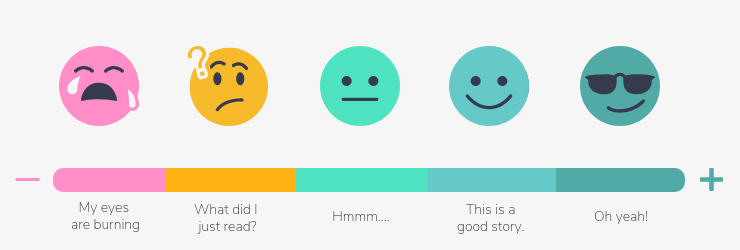How to Give Script Feedback That’s Actually Helpful
No writer enjoys getting feedback. It’s harrowing, like walking out onstage before a crowded theater to be judged. Naked.

On top of that, many notes, aside from being gut punches to the fragile ego, don’t actually help. They point out something’s broken, but offer no idea of how to fix it.
Example:
Reviewer: “This part is boring”
Writer: “Why?”
Reviewer: “I don’t know”
Writer: “Great”
However, there’s hope that the suffering will be worth it if the note-giver follows one simple rule: help the writer do what they set out to do. This is how professional screenwriters give each other feedback, and it’s the rule I follow with every script consultation I give.
Ask the writer what they’re going for.
Before you can help the writer know if they’re achieving their goal, you have to know their goal. Ask them what they want their script to feel like, what they want the reader to experience. This can completely change the feedback you give on a script. Imagine you’re reading someone’s work, and you read it straight, and your first thought is, “This is incoherent. It’s crazy-town with steaming LSD sauce.” You make a litany of notes pointing out how weird, strange, and confusing it is. But then you remember to ask the writer what they were going for, and they tell you it’s a farce, meant to be all the things you thought were actually problematic. Voila. You’ve saved yourself and the writer from the pain of exchanging pointless, unhelpful notes.
Start with the positive.
This is the best way I know to prep the writer to hear your feedback. After all, we’re more likely to listen to what people say if we believe they care enough to see the good in us and our work. So, to help the writer accept your notes, which is an emotional journey for many, it’s incredibly helpful to start with the positive even if you have to bend over backwards. It lets the writer know that you actually care and that the hard things they’re about to hear come from a place of honesty and a desire to help, rather than sadism. Because no one wants to take notes from a sadist.
Couch criticism within the framework of their goal.
To help the writer see the wisdom of your notes, point them back to their goal. Show them that a character moment clashes with the theme, or point out how a scene slows down the story when it needs to move faster, or how the prose doesn’t match the mood they’re trying to set. You’re a test audience, and the best feedback you can give is to tell them what you think an audience would experience, and if, in your opinion, that matches or misses the writer’s goal.
So be kind, be generous, be thoughtful, and be thorough, and believe in the writer. You never know: your notes might just help them turn their script from problematic into professional. I speak from experience — but that’s a story for another time…
Writers Spotlight:
- For a place to give and receive great feedback check out our app ScriptShare.
